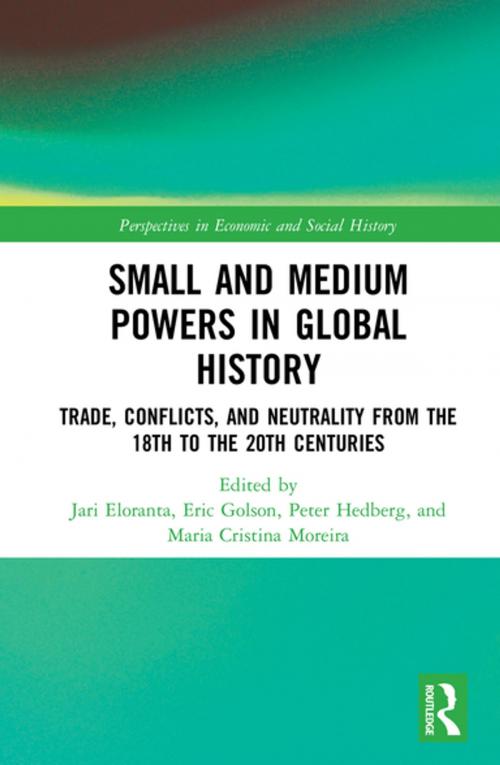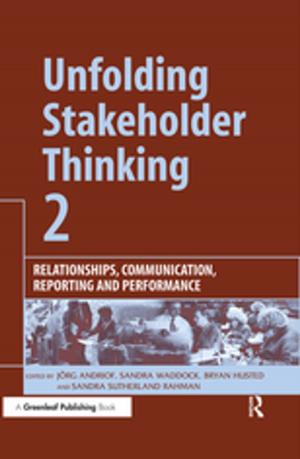Small and Medium Powers in Global History
Trade, Conflicts, and Neutrality from the 18th to the 20th Centuries
Business & Finance, Economics, Economic History| Author: | ISBN: | 9781351720847 | |
| Publisher: | Taylor and Francis | Publication: | September 3, 2018 |
| Imprint: | Routledge | Language: | English |
| Author: | |
| ISBN: | 9781351720847 |
| Publisher: | Taylor and Francis |
| Publication: | September 3, 2018 |
| Imprint: | Routledge |
| Language: | English |
This volume brings together a leading group of scholars to offer a new perspective on the history of conflicts and trade, focusing on the role of small and medium, or "weak", and often neutral states. Existing historiography has often downplayed the importance of such states in world trade, during armed conflicts, and as important agents in the expanding trade and global connections of the last 250 years. The country studies demonstrate that these states played a much bigger role in world and bilateral trade than has previously been assumed, and that this role was augmented by the emergence of truly global conflicts and total war.
In addition to careful country or comparative studies, this book provides new data on trade and shipping during wars and examines the impact of this trade on the individual states’ economies. It spans the period from the late 18th century to the First and Second World Wars and the Cold War of the 20th century, a crucial period of change in the concept and practice of neutrality and trade, as well as periods of transition in the nature and technology of warfare.
This book will be of great interest to scholars of economic history, comparative history, international relations, and political science.
This volume brings together a leading group of scholars to offer a new perspective on the history of conflicts and trade, focusing on the role of small and medium, or "weak", and often neutral states. Existing historiography has often downplayed the importance of such states in world trade, during armed conflicts, and as important agents in the expanding trade and global connections of the last 250 years. The country studies demonstrate that these states played a much bigger role in world and bilateral trade than has previously been assumed, and that this role was augmented by the emergence of truly global conflicts and total war.
In addition to careful country or comparative studies, this book provides new data on trade and shipping during wars and examines the impact of this trade on the individual states’ economies. It spans the period from the late 18th century to the First and Second World Wars and the Cold War of the 20th century, a crucial period of change in the concept and practice of neutrality and trade, as well as periods of transition in the nature and technology of warfare.
This book will be of great interest to scholars of economic history, comparative history, international relations, and political science.















